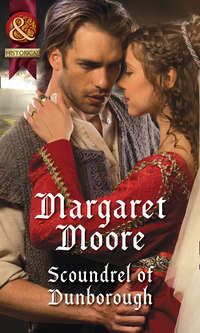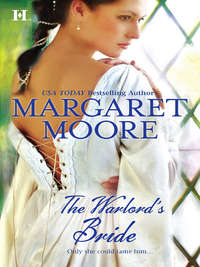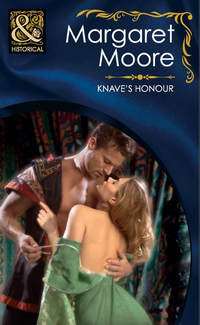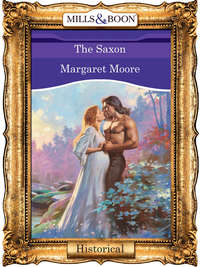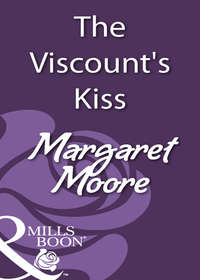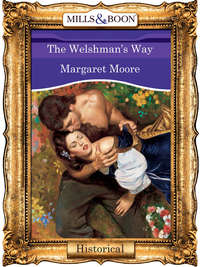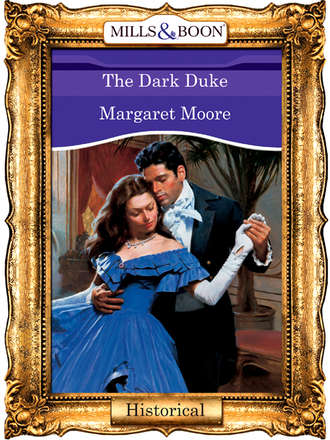
Полная версия
The Dark Duke

Table of Contents
Cover Page
Excerpt
Dear Reader
Title Page
About the Author
Dedication
Chapter One
Chapter Two
Chapter Three
Chapter Four
Chapter Five
Chapter Six
Chapter Seven
Chapter Eight
Chapter Nine
Chapter Ten
Chapter Eleven
Chapter Twelve
Chapter Thirteen
Chapter Fourteen
Chapter Fifteen
Chapter Sixteen
Chapter Seventeen
Chapter Eighteen
Chapter Nineteen
Chapter Twenty
Chapter Twenty-One
Chapter Twenty-Two
Chapter Twenty-Three
Author Note
Copyright
“I would not trust you any more than I would your master,”
Hester murmured as she paused to admire the horse.
“Which is to say, not at all, I warrant.”
The duke walked slowly toward her. “Lady Hester, you are an intelligent woman, so I do not expect you to trust me.”
“After yesterday, you can be certain of that,” she snapped, her surprise making her sharp when she would have preferred to sound nonchalant “Good day, Your Grace.” She tried to walk boldly past him, but he stepped into her way.
“There is no need to run off. I promise you I will keep my distance.”
“I am not afraid of you.”
“My dear young woman, are you telling me I am losing my ability to inspire terror and awe in the female breast?”
Dear Reader,
Who would have thought that when we published Margaret Moore’s first book, A Warrior’s Heart, in 1992, we would be publishing her twelfth full novel, The Dark Duke, five short years later. This story is the next in the author’s terrific new series of Victorian romances featuring a trio of “most unsuitable” heroes. This particular hero has a very nasty reputation, but that doesn’t scare our brave heroine, who sees the lonely man behind the handsome facade. Don’t miss this one. And come fall, be sure to keep an eye out for Margaret Moore’s newest short story, “The Twelfth Day of Christmas,” in our in-line THE KNIGHTS OF CHRISTMAS short-story collection.
Sweet Sarah Ross by Julie Tetel, which follows the next generation in the author’s ongoing NORTHPOINT series, is a Western adventure story with enough perils to keep Pauline happy. The Secrets of Catie Hazard, by Miranda Jarrett, is a Sparhawk story, this time with a secret baby and lovers who must overcome not only a troubled past but a turbulent present in order to reunite. And Enchanted from Claire Delacroix is the magic-filled story of a valiant knight who can be rescued from a wicked curse only by the love of a beautiful noblewoman.
All four books this month are ones you won’t want to miss. We hope you keep a lookout for them wherever Harlequin Historicals are sold.
Sincerely,
Tracy Farrell
Senior Editor
Please address questions and book requests to:
Harlequin Reader Service
U.S.: 3010 Walden Ave., P.O. Box 1325, Buffalo, NY 14269 Canadian:
P.O. Box 609, Fort Erie, Ont. L2A 5X3
The Dark Duke
Margaret Moore

MARGARET MOORE
confesses that her first “crush” was Errol Flynn. The second was “Mr. Spock.” She thinks that it explains why her heroes tend to be either charming rogues or lean, inscrutable tough guys.
Margaret lives in Scarborough, Ontario, with her husband, two children and two cats. She used to sew and read for reasons other than research.
For Ruth, Louise, Allison and Amy, the other women in my husband’s life.
Chapter One
Hampshire, 1863
Her Grace, the Duchess of Barroughby, was most seriously displeased.
Lady Hester Pimblett, who had been the duchess’s companion for the past four months, recognized the symptoms at once in the older woman’s compressed lips and furrowed brow.
“Have the goodness to bring the footstool with all speed!” the formidable woman snapped peevishly, her brown eyes full of anger, her white lace cap shaking with rage and her black bombazine dress suddenly looking like armor donned for battle. “And do close the drapes. I am getting a headache!”
At times such as these, Hester pondered the merits of being a companion to an older woman instead of living with her parents or one of her recently married sisters, for as she hurried to her ladyship’s aid, she suspected her efforts to soothe the woman’s perceived ills would be futile. The duchess crumpled a recently received letter in her long, thin fingers and Hester wondered what it contained to bring on this irate response.
The offending epistle appeared to be written in a masculine hand and, judging by the duchess’s extreme reaction, was not from her treasured son. Therefore, Hester concluded, either the writer of the letter, or its subject, was her stepson, the notorious Duke of Barroughby.
Hester moved the footstool so that her ladyship could repose her rather large feet upon it. The duchess was upset if she would recline, for the duchess considered it the height of poor breeding to loll, as she had remarked to Lady Hester any time her young companion seemed to be displaying any predisposition to lean back against a chair.
Hester then closed the heavy damask draperies and prepared the vial of perfume with which the duchess would surely wish to anoint her temples.
“He dares to come to me!” the duchess suddenly exclaimed vehemently. “The scoundrel! The blackguard! His poor father would turn in his grave if he knew even half of what his son has done!”
So Lord Adrian Fitzwalter, the eldest son of the late duke, a man also known as the Dark Duke of Barroughby, was coming home.
He had not been at Barroughby Hall since Hester’s arrival, and she had to admit to some curiosity to see this famous fellow up close. Once or twice the infamous rake had been pointed out to her at large assemblies, amid much whispering and speculation.
His powers of seduction were legendary, and Hester supposed if she were better looking she would have cause to dread his arrival. However, she was not, and so, surely safe from attracting such a rogue’s notice, she was free to indulge in the harmless excitement of anticipating his arrival. For once, she thought with a secretive smile, her family might actually pay attention to something in her letters.
Jenkins, the butler, appeared in the doorway of the drawing room. “Your Grace?” he inquired, leaning toward the women, “is anything the matter?”
Hester smothered another smile. The aged retainer was quite hard of hearing, yet he would have had to be completely deaf not to hear the duchess’s exclamations.
“Fetch the duchess some wine, please,” Hester said.
“Time? Time for what, my lady?” Jenkins inquired.
“Wine! Some wine for the duchess.”
“Oh, very good, my lady.” The butler tottered off, and Hester once again regarded the indignant duchess.
“At least dear Elliot is abroad!” her ladyship exclaimed, choosing to ignore the fact that she had been expecting her son to come to Barroughby Hall the whole time Hester had been a resident there. “I should refuse Adrian entrance to this house, the disgraceful creature! I shall send him from here at once. The impertinence of the rascal!”
Hester remained silent and let the duchess ramble on. She knew that her ladyship neither wanted nor needed any response to continue to voice her opinion.
“Yes, I shall give him no greeting, or any mark of attention. He may lodge at an inn in the town if he wishes, but he shall not stay here!” She moaned softly and covered her eyes. “Where is my perfume? Send for Dr. Woadly. I am most unwell. I feel quite dizzy!”
“I shall do so at once, Your Grace,” Hester said, although she hastened not to summon a footman to fetch the doctor, but to dab some scent on the duchess’s forehead. She wasn’t sure calling out Dr. Woadly was necessary, and he spent an inordinate amount of time at Barroughby Hall for a variety of minor complaints as it was. “When does the duke arrive?” she ventured as she straightened and set the perfume on a side table.
The duchess lowered her hand and gave Hester a severe frown. “Today, of course.” Her hand returned to shielding her eyes. “Oh, the audacity! He does not even wait for my reply!”
“Because I knew it must be all graciousness and felicity” a deep voice remarked from the vicinity of the door.
Hester turned at once and looked at the man standing on the threshold of the room, leaning against the frame in a casual pose, his arms crossed over his broad chest. He was tall and had a very fine figure displayed to perfection in a blue morning coat, brilliant white linen shirt, tan breeches and Wellington boots. His hair was black, as were his thick but shapely eyebrows, and he was so extremely handsome that Hester did not doubt she was beholding the Dark Duke himself.
If there was one thing surprising about his appearance, it was that his face was so pale, for the epithet “dark” also referred to a complexion browned by his time spent out of doors riding and hunting.
Hester made a slight curtsy and moved away from the duchess. The duke glanced briefly at her, then returned his attention to the duchess, who was regarding him with an expression that was a mixture of shock, anger and, Hester noted with some surprise, what might be fear. She had not supposed that there was a person in England who could intimidate the duchess even temporarily, but apparently here he was, in the flesh.
Or maybe the duchess’s reaction was not so very surprising, for there was something about the man’s overwhelming presence that seemed to inspire at least awe, if not more.
Her Grace, momentarily robbed of the powers of speech, watched as the duke sauntered into the room and took a seat without waiting to be invited. Hester made her way toward the door, for she felt her company was not wanted here. As she did so, she noted that the duke did not loll.
“Hester, where are you going?” the duchess suddenly demanded. She glanced uneasily at her stepson. “I have not told you to go.”
“I believe, stepmother,” the duke drawled, “that your charming companion feels it indelicate to remain. Is that not so, Miss…?” He turned to look at her with a slightly interrogative expression that Hester found quite unnerving. The least pretty of her sisters, she was not used to any kind of scrutiny, let alone the scrutiny of a man of the duke’s reputation.
Before Hester could speak, the duchess intervened by making a proper, ungracious and overdue introduction. “This is Lady Hester Pimblett. Her father is Lord Pimblett.”
“Charmed, Lady Hester,” the duke said, rising slightly and giving her a sardonic, somewhat self-deprecating smile that made her realize how he came to have his reputation for seduction. With his looks, piercing gaze and that smile, he could win many a maiden’s heart.
Although Hester felt herself equal to meet the duke, coming from a family at least as old as his if not of the same rank, she felt herself blushing at his steadfast regard.
“I wish her to remain. I am unwell,” the duchess said, and Hester realized that after the initial shock of the duke’s unexpected arrival, the duchess was returning to form.
The duke inclined his head in acceptance, or perhaps merely a reluctance to argue, and Hester resigned herself to the awkwardness of her situation.
“I demand to know what latest unsavory business has brought you here,” the duchess said sternly. Apparently her triumph in the matter of Hester’s continuing presence had emboldened her, or been enough to return her to her normal state.
“Is it not possible that I merely wish to visit my stepmother?”
The duchess’s response was a sniff of contempt. “Was the woman married? Is that why you have to slink off into the countryside and disturb us here?”
“She was not married, but that is not why I have come”.
“Why, then?”
Hester saw a flash of temper in the Dark Duke’s eyes, yet he remained perfectly motionless, which was not what she would have expected from his passionate reputation. “I have every right to come home,” he said evenly.
“I’m not surprised you had to leave London. I suppose there was another duel.”
“Suppose what you like, Your Grace,” he replied, using the most formal of addresses. “I am going to trouble you only a little while. Where is Elliot?”
“Mercifully, still in France.”
“Ah. When do you expect him home?”
“Any day, Adrian, any day. I must say, I am delighted he is still abroad. He does not need to be tainted by another scandal involving you! Do you never think of us? Do you never think of your brother? No, don’t trouble to answer! It is perfectly obvious! You only think of yourself!” The duchess glared at him and Hester shifted uncomfortably, wishing she was not present.
The duke rose slowly. “If you will excuse me, I shall retire to my room.”
“I have not finished with you! I want to know what you have done now!”
The Dark Duke looked at the duchess, and Hester detected more than slight scorn in his black eyes. “As much as I am convinced your interest in knowing the details of the latest scandal is genuine, I am finished with you, Your Grace. My opponent was not the only one who was injured, and unless you wish me to get blood all over the carpet—” both women gasped, but the duke remained coolly calm “—you will not detain me. Lady Hester, I give you good day. Your Grace, my compliments.”
“Would you like me to call for a footman?” Hester asked, hurrying past him toward the door.
“Hester!” the duchess called out. “I need you.”
Adrian watched with slight amusement as his stepmother’s latest companion—or slave, as he always thought of these unfortunate creatures—hesitated. Then, to his very great surprise, Lady Hester did not immediately return to the duchess’s side. Instead, with a determined expression manifested by a slight downturn of her full lips, she said, “If you will excuse me. Your Grace, I will be but a moment,” and left the room without waiting for an answer.
Adrian would have smiled with satisfaction to see his stepmother disobeyed, except that he knew such a reaction from him would only inflame his stepmother’s anger and make things more difficult for Lady Hester.
Why would a young woman of wealth and privilege waste her days tending to the duchess? he wondered. She must have more opportunities than that, even if she wasn’t a beauty.
Pimblett. He knew that name, and recalled the daughters, although not a Hester. Helena Pimblett was reckoned a great beauty. He had seen her once at the theater, and thought her a vain, stuck-up creature. It was said by men of his acquaintance who could be expected to know such things that the younger sister was a beauty, too. However, he had never seen or heard of another sister, and it was fairly obvious why, for this young woman could never attract much notice in London.
Still, there was a certain wholesome prettiness to her. Her eyes were the friendly blue of cornflowers, fringed by lashes of soft brown that matched her chestnut hair drawn into a plain and rather severe knot of a bun. Her complexion was excellent and he had little doubt that she had been raised in the country, for her skin had the satiny texture of a country-bred lady. There was a delicacy to her features that he found interesting, and she had a nose that no woman need be ashamed of. She was simply and plainly gowned with good taste, and her figure was more than acceptable.
Judging by her response to the duchess, she must also be a rather uncommon young woman. He would not have said there was a young lady in all of England who would not be intimidated by his stepmother, yet apparently there was and, he realized with pleasure, she was in the duchess’s company.
Lady Hester appeared in the doorway, followed by Jenkins and two footmen. By now Adrian’s wound was aching badly and he could feel the blood seeping through the bandage. Nevertheless, he did not feel quite so decrepit as to need the assistance of three grown men.
“I took the liberty of sending for the surgeon to tend to the duke, as well as Dr. Woadly,” Lady Hester said in a voice as friendly and pleasant as her countenance. She spoke to the duchess before looking at him, whereupon she regarded him steadily, as if he were a specimen in a bottle.
He returned the scrutiny, more out of curiosity than anything else, and then decided to conduct his own experiment upon this unusual woman. He smiled at her with all the charm he could muster. “Thank you, Lady Hester.”
She did not blush or look away with false modesty or stare at him with impertinent curiosity. She simply resumed her seat.
Her reaction, or nonreaction, didn’t mean anything, Adrian told himself. Why should it, when she was nothing to look at? And it could be that, sick and pale from the loss of blood, he was not at his best. Yes, that had to explain why a woman of her age would not respond to his charm.
He decided to ignore her, and limped toward the door. “Jenkins, if I may lean upon your arm, you may dismiss the footmen. Send the surgeon to my room as soon as he arrives.”
“Lady Hester!” the duchess said. “Please fetch the smelling salts.”
Without so much as a glance Adrian’s way as he left the room, the young lady hurried to his stepmother’s side.
“I must indeed look sick,” Adrian muttered as he made his way toward the stairs, keeping most of his weight off the elderly butler, using Jenkins only for balance.
“Look at what, Your Grace?” Jenkins asked.
“I didn’t say anything.”
“Yes, you did. Your Grace” Jenkins corrected. “You said, ’Look at it.”
“I meant my father’s portrait. I think it needs to be cleaned.”
They paused and surveyed the portrait of the late fifth Duke of Barroughby—in his full regalia for the House of Lords—which was hung on the landing. Beside it was a smaller portrait of Adrian’s mother.
“Ah, those were good days,” Jenkins said with a sigh. “I was younger then.”
“So were we all,” the sixth Duke of Barroughby noted as he passed them by.
“Don’t look so glum, John,” Adrian chastised the surgeon, who was applying a fresh bandage to the wound in his leg. “I’ve had worse.”
“What caused it?” John Mapleton asked. The stout man puffed a little from the exertion of bending over Adrian’s elevated leg. “Not a sword.”
“Pistols at twenty paces.”
“Ah!”
“It bled terribly, but no lasting damage, the London surgeon said.”
“Lucky for you.” Mapleton straightened with a grunt. “Lucky again. One of these days you’re not going to be lucky. You’re going to be dead.”
“I didn’t have very much to fear from my opponent. I was far more concerned that his shot not hit my second or some innocent bystander.”
“Huh.” Mapleton began repacking his black bag. “What was the cause? A woman?”
“Yes.” Adrian lifted his foot and placed it gingerly on the thick carpet. On the table beside the brocade chair was a basin full of bloodied water and a cloth the surgeon had used to clean the reopened wound, items that seemed distinctly out of place in the ornately decorated room with its expensive wallpaper, comfortable brocade chairs, delicate tables, large canopied bed, damask draperies on the tall, narrow windows and chinoiserie armoire.
Mapleton gave him a shrewd look. “Yours or Elliot’s?”
Adrian didn’t answer.
Mapleton frowned and went back to his task. “Elliot’s, then. I should have known. The young fool ran off to hide in Europe and you took the blame. Again.”
“All has been taken care of, so I would prefer to let the matter drop.” Adrian winced as he stood and tried to put some weight on his leg.
“I would rest some more, Your Grace, if I were you. Tell me, did it never occur to you to take a coach here?”
“Drake needed the exercise, and after London, I wanted the air.”
The deep, measured tones of Dr. Woadly were heard as he passed Adrian’s door. “I fear my presence has sickened my stepmother,” he noted sardonically.
“You could send her to the Dower House.”
Adrian slowly resumed his seat. “And have her tell everyone I turned her out?”
“She has no right to Barroughby Hall,” Mapleton said. “Your father left everything to you.”
“So he did.” Adrian reached into his vest for a cheroot. “I suppose, given my reputation, one more blemish shouldn’t matter.” He struck a match. “Don’t imagine I haven’t given it some thought. Still, my father wanted her to remain here. Along with Jenkins.”
“Your father has been dead these ten years.”
Adrian raised one dark eyebrow, well aware that Mapleton would never see eye-to-eye with him on certain things. “I was not aware there was a time limit on promises made to a dying parent.”
“There should be!” Mapleton said forcefully.
“This is such an unpleasant topic, John,” Adrian said as the smoke from his cheroot curled toward the high ceiling. “Sit down and have a drink with me.”
Mapleton thought a moment, then nodded his head. “If you let me get it.”
“Only too happy not to have to stir a hair,” Adrian replied lightly.
Mapleton went to another small table that held a decanter and some crystal glasses. He poured two drinks and handed one to Adrian before sitting beside him. “I really think you should consider retiring Jenkins. Give him a cottage and a pension. He’s getting too old for his duties, and his hearing…” Mapleton left off suggestively.
“I know. He’s worse every time I come. I’ve made certain he has only the basics to attend to, for the one time I said something about his age, I thought he was going to cry.” Adrian drew on his cheroot and let the smoke out gradually. “You can’t imagine a more worrisome sight than old Jenkins with a tear in his eye.”
“Must you joke about everything, my lord?”
Adrian gazed at the surgeon with a thoughtful expression. “It helps,” he said truthfully.
“I’m surprised the duchess hasn’t insisted he go,” Mapleton said after a short silence. “She doesn’t strike me as having the patience to put up with his mistakes.”
“Ah, now there I can offer an explanation,” Adrian replied, happy to be diverted from a serious subject like promises made on his father’s deathbed. “Jenkins was in his middle years when the duchess married my father. Now, if Jenkins is getting too old to do his job, well, how old is the duchess, then?”
Mapleton frowned. “You mean, if she admits that Jenkins has to stop working, she’s admitting she’s getting old herself.”
“Exactly!”
“And I suppose I could extrapolate that she also feels by having a young woman who is not noticeably attractive for a companion, she maintains her position as the most beautiful woman in the household.”
“One could say that,” Adrian agreed, for such an explanation might also illustrate why the duchess didn’t get angry over Lady Hester’s slight defiance. “How long has Lady Hester been here?”


